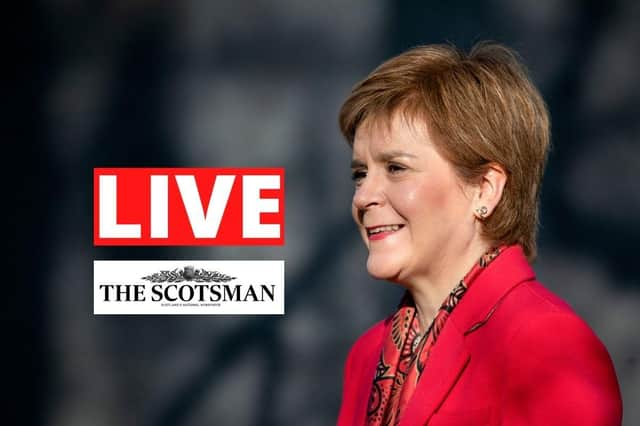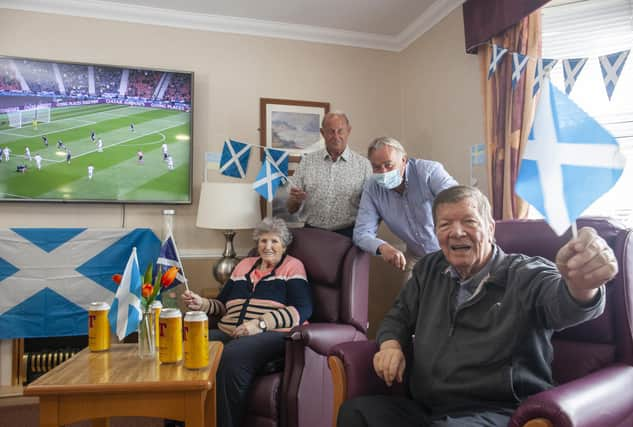Nicola Sturgeon FMQs RECAP: Scotland's First Minister challenged on drug deaths | Douglas Ross calls for action | Anas Sarwar demands answers on 'PPE shortages'


Scroll down to see the latest news on the pandemic on Thursday, June 17.
Covid Scotland: The latest updates on the pandemic on Thursday, June 17
Key Events
- Nicola Sturgeon to attend FMQs at Holyrood
- Alcohol sales in Scotland drop to lowest level for 26 years
- Ryanair ‘to begin legal action over travel traffic light system’
On reports Scotland’s central stockpile of PPE ran very low in the early stages of the pandemic, Ms Sturgeon said: "We didn't have to ask anybody else for mutual aid - because we did not run out of PPE."
Scottish Greens highlight third year of government’s missed climate targets
Patrick Harvie, co-leader of Scottish Greens, says: “The government is failing to live up to the rhetoric about world beating targets."
Ms Sturgeon concedes there is a need to accelerate climate change progress, adding "we of course want to hit those targets".
Labour's Anas Sarwar says PPE may not have run out on spreadsheets, but a lack off PPE "cost lives"
Nicola Sturgeon says supply was low at times, but an Audit Scotland report found supplies "did not run out"
Nicola Sturgeon: "Before the pandemic, round about 100% of our PPE was imported. Now, the majority of it is manufactured here in Scotland."
Nicola Sturgeon: “This is difficult work. There are no easy solutions. We accept that. Change will not be delivered overnight, but we are determined to make the change that is required. That’s why Angela Constance is the Drugs Policy Minister. She reports directly to me.”
Douglas Ross asks if Nicola Sturgeon accepts that the Scottish Government’s addiction treatment system is “fundamentally broken”.
The First Minister says she accepts “we are not yet where we want to be”.
Scientists develop ‘transformative’ saliva Covid test
A university is trialling the use of saliva samples to test for Covid-19, a move researchers claim could be “transformative” for screening large numbers of people and cuts the risk of community transmission.
Scientists behind the pilot TestEd scheme at the University of Edinburgh said it is potentially more accurate, less invasive and cheaper than current tests.
The tests use a saliva sample in a tube which undergoes hypercube sample pooling to allow dozens of samples to be PCR-tested simultaneously.
Pooling the samples reduces the costs and time involved in processing existing PCR tests but maintains accuracy, researchers said, unlike the lateral flow tests which are available to those without symptoms but are less accurate.
The saliva tests will be offered twice-weekly to all students and staff as they return to campus and aim to detect infections before symptoms appear to minimise transmission.
TestEd chief investigator Professor Tim Aitman said: “The rise in cases caused by the Delta variant and the subsequent pause in the easing of restrictions are a timely reminder that we will be living with this disease for some time.


Scotland legend Alan Rough meets care home residents to talk about hopes of beating England in Euro 2020 clash
Legendary Scotland goalkeeper Alan Rough has met with care home residents in Glasgow ahead of the country’s Euro 2020 clash against England.
Comment Guidelines
National World encourages reader discussion on our stories. User feedback, insights and back-and-forth exchanges add a rich layer of context to reporting. Please review our Community Guidelines before commenting.